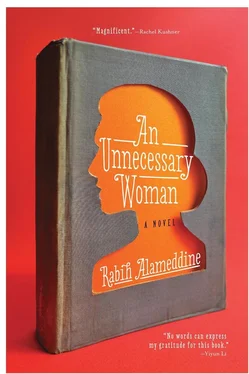Do no harm to your fellow man unless he’s your boss.
I tried to imagine that I was mistaken, or, if not, then to justify his actions in my mind. This was during a civil war when innumerable crimes were committed — crimes that made my half brother the eldest’s seem like lunch-recess pranks in comparison. Vengeance was in the very air then. To quote the poet Czesław Miłosz, during the Lebanese civil war, “causing someone’s death was dissociated from the reek of demonism, pangs of conscience, and similar accessories of Shakespearean drama.” Young men in perfectly clean uniforms were able to shoot people while gnawing on a kebab sandwich and sipping Pepsi.
I tried to justify but I couldn’t.
I don’t know what to think.
He may be my half brother, but we’re not related. A chasm of incommunicable worlds lies between us.
When my stepfather died, my half brother the eldest magically morphed into the man of the house that he had never moved out of. My mother went on living with him. She wouldn’t have considered living with me, nor would I have wished it. My mother loves her sons only and never cares to be discreet about it. She treats her youngest daughter as a second-class citizen, a second-gender offspring. I, her eldest, hardly register in her consciousness. Once I stopped trying to impress myself into her life, she forgot about me. If she considers her youngest daughter Fanny Price, I’m her Quasimodo, to be confined in the bell tower.
For my half brother the eldest to bring her to my home means that every one of his brothers has adamantly refused to take her off his hands.
I tell him, calmly, that I don’t think it’s feasible. I’m about to suggest that she won’t be happy when I see her standing in my open doorway, held erect by my sister-in-law. My mother, alarmingly fragile in all black, is hunched over, as if she has walked out of Goya’s A Pilgrimage to San Isidro . The face has the paleness seen in skin long hidden from the sun. Hair is still dyed black, fading, with a thumb’s-width vein of white at the roots. She barely keeps her head up; breathing is an effort, as is living. The lines of her body, of her form, seem to have melted; for a moment, incongruously, as light streams through the door behind her, it seems that I can see both the front and the back of her. My mouth drops, my shoulders droop. My mind becomes congested, jammed with feelings and thoughts that I can’t formulate nimbly enough. I haven’t been in her presence in so long. I’ve forgotten how scrambled my brain becomes when she’s around. My sister-in-law walks my mother gingerly into the foyer, holds her tightly like an overboard sailor clutching a piece of driftwood, but also delicately, as if she’s gossamer. My sister-in-law’s wedding band glimmers as her fingers wrap around my mother’s elbow.
I receive a whiff of the musty, sour odor of my mother’s age.
“She belongs to you now,” my half brother says. The wormlike vein in his temple throbs and thickens.
“She’s yours now,” my sister-in-law says, spitting the words out of tightly pressed, raggedly crimsoned lips. Her mousy face reddens, like a wet shirt brightens on a laundry line.
My mother, a modern-day succubus, has the ability to drain my soul and my voice without having to resort to something as rudimentary as a kiss. But I can’t allow this charade to go on much longer. I take a long motivational breath.
“No,” I say, in a low, sticky tone. “She is not mine.”
My mother raises her wraithlike head and looks at me. Her furrowed face contorts, shrinking the wrinkles and multiplying them tenfold. Her mouth draws open in toothless horror. Her gnarled hands rise, her palms face me, warding off evil. My mother tries to pull back from her daughter-in-law’s arms. The black shawl drops from her bony left shoulder, but doesn’t fall off completely. Her eyes display strident, unspeakable dread. She screams, a surprisingly loud and shrill shriek. From such a frail body, a defiant skirl of terror that does not slow or tire.
None of us budge; in a well-lit 1950s foyer we stand like Italian terra-cotta sculptures, Renaissance, all of us terrified, my mother screaming and screaming. The normally invisible dust in the foyer dances and prances in the light, mocking the immobility of the humans.
Her body exudes a cold of ancient winters. The chill rises up from my feet. I shiver and tremble.
My half brother the eldest finally turns to me, his hand palming his right chin; his body, his face, the age-old universal pose of the horror-struck. “What have you done?” he asks, while my mother screams some more.
Nothing. I’m still in my nightgown and robe de chambre, for crying out loud.
Nothing. I’ve done nothing.
Fadia storm-troops across the foyer, her clogs loud enough to be heard alongside the scream, but not till she is almost upon me does she ask, “What is happening here?” Her eyes are questioning, more surprised than anything. Eyelids already hued with blue eye shadow, azure — not fully made up yet, but on the way. Her lips are outlined with black eyebrow pencil, but not filled in with color. Girlish golden hoops adorn her ears.
“She doesn’t recognize you,” shouts my sister-in-law, still holding my mother. “That’s all. She doesn’t recognize me most of the time either. It’s nothing. She’ll get used to you. I know she will. She has to.”
“Can someone shut her up?” yells Fadia, her open mouth showing teeth stained by nicotine. “My nerves can’t handle this.”
I can’t tell whether Fadia means the screamer or the speaker. No one is asking about my nerves.
I notice that my upstairs neighbor Joumana has entered my apartment as well. Marie-Thérèse remains in the doorway, curious but considerate, too many people in my small foyer. Joumana, in a winter dress with scalloped neckline, positions herself next to Fadia, holding a long-handled broom bottom side up, other hand on hip, looking less like a menacing sentinel than a burlesque of a Pontormo painting. Why did she rush down with a broom? Did she expect a swordfight? Dumas, Marías, Conan the Barbarian?
Joumana and a broom, a university professor and a housecleaning implement, an incongruous vision.
My mother tires suddenly, looks hopeless and threadbare. The decibels drop; her screams are reduced to mewls and whimpers.
“Tell her she must keep her mother.” My sister-in-law nudges her husband, who appears the most shaken. His white comb-over stands on end. “She must. I’ll not take her back. I cannot bear it. You tell her.”
“I will do no such thing,” I say.
“You tell her,” yells my sister-in-law.
My mother begins lowing softly, like a sick cow. She drops her head as if she wants to fold into herself. She is tiny, making it difficult to imagine that I, the tallest person in the room, am related to her in any way, let alone that I’m her offshoot.
“You want to leave her here?” asks Fadia. “Are you insane?”
“This doesn’t concern you,” my sister-in-law says. Her teeth crowd together as if trying to jump out of her mouth.
“Of course it does.” Fadia’s eyebrows fly up toward her hairline. “Everything in my building concerns me. Leave now. I’ve had all I can take from your family for fifty years. No more. Get out.”
My sister-in-law tries to move my lowing mother forward, and the scream returns. I cover my ears.
“Take her back,” shouts Fadia. “Leave and take her with you. Take her back.”
I lean against the glazed door separating the crowded foyer from the rest of my apartment. I wish to be transported to another dimension. Nothing makes sense. I watch the proceedings as if I were at a screening of an Antonioni movie without subtitles. My hands, usually so calm, tremble slightly, and my left eye moves restlessly, independently. In my head, and only in my head, I hear a fast rendition of one of Liszt’s transcendental études, played by Sviatoslav Richter on 78 rpm.
Читать дальше












